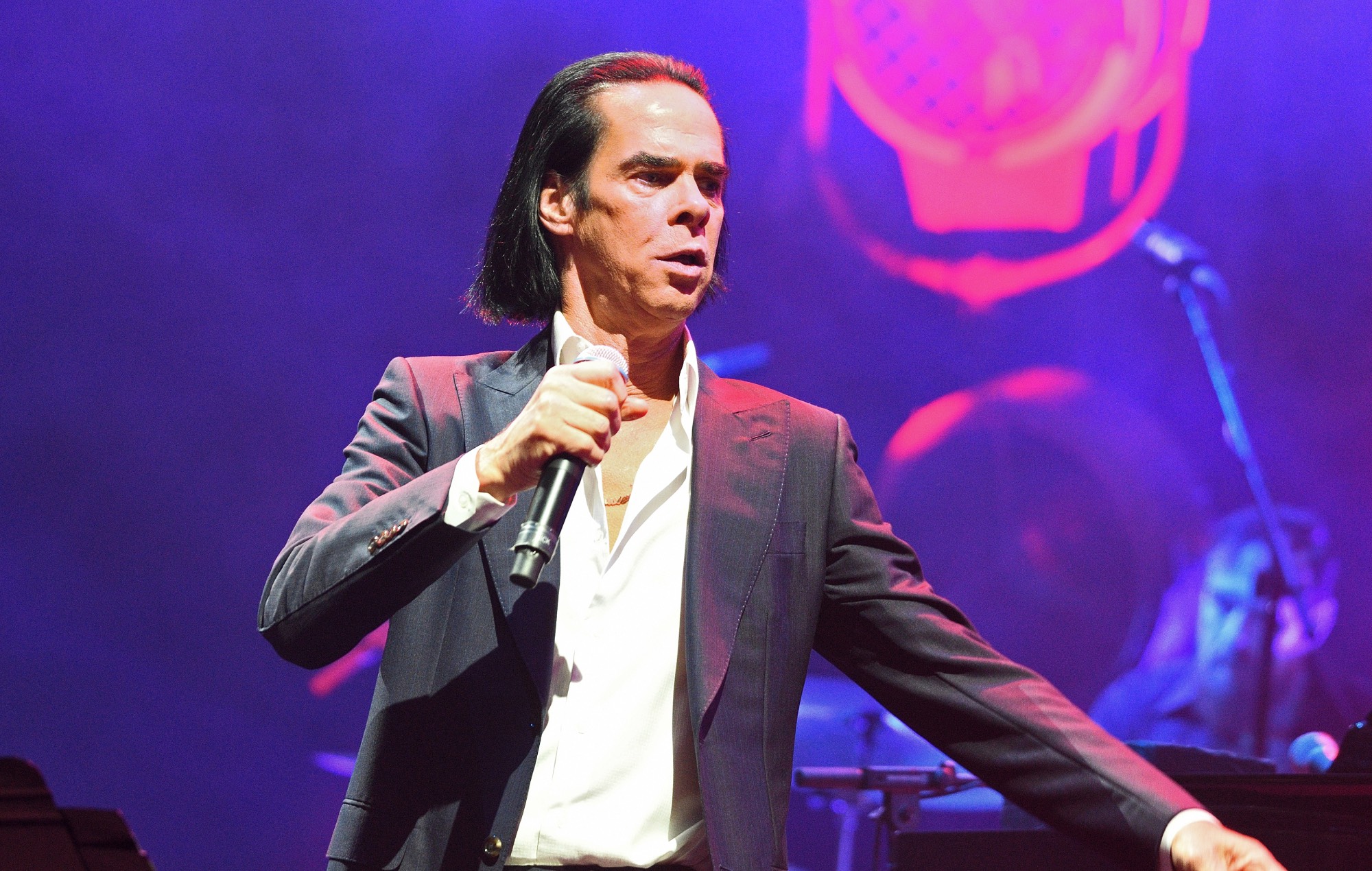Nick Cave has opened up about the the origins of the title of his new ‘Wild God’ album with the Bad Seeds and has also revealed what some of the album’s alternative names were.
READ MORE: Nick Cave: “There’s no metric that says virtuousness makes good art”
The album arrives later this week (August 30) and has been co-produced by Warren Ellis. You can pre-order it here. The LP will be comprised of 10 songs and sees the band move between themes of convention and experimentation – introducing left-turns that heighten the rich imagery and emotive narratives created by the frontman.
It’s been previewed so far by a number of singles including ‘Long Dark Night’, the album’s titular track and ‘Frogs’.
In response to a fan who had wrote in to his website, The Red Hand Files, Cave opened up about where the title of the poem came from. The fan who had written in shared that he had written a poem called ‘Wild God’ and wondered if Cave had read this.
Cave replied: “I am aware of your poem, although I came upon my ‘Wild God’ entirely independently of your ‘Wild God’. As a friend suggested, perhaps the same ‘Wild God’ was just ‘doing the rounds’ looking for someone new to write about him!
“At the end of November last year, Warren and I were at Dave Fridmann’s studio, Tarbox Road, in Cassadaga, New York, which is basically just a cabin in the woods. On the final afternoon, it was raining heavily and the two of us were sitting on the porch watching the rain overflowing the gutters and dripping through the trees. We had finished the mixing, felt we had an excellent record, and were pretty pleased with ourselves. Warren asked me what we were going to call the record.”
He continued: “I had three ideas, which were titles of songs on the album, ‘Conversion’, ‘Joy’ and ‘Wild God’. We discussed the titles and thought ‘Conversion’ was probably too overtly religious and may scare people off; we both liked ‘Joy’, but I was concerned that the word ‘Joy’ might be interpreted as ‘Happy’, which felt misleading. This left ‘Wild God’. We both agreed that this was a powerful and mysterious title for an album.”
He went on to explain that he Googled the term ‘Wild God’ to make sure nobody else had used it and then found there was a poem called ‘Sometimes A Wild God’ – which had been written by the fan who wrote into Cave.
He went on to recall that he read the poem to Warren who replied “great poem”, to which Cave added: “amazing poem. Beautiful poem.”
He continued: “Warren and I grew silent. We sat on the porch in the woods and continued to watch the rain spill over the gutters and drip through the trees, thinking about the poem. ‘Fuck it,’ says Warren, ‘there’s always something.’
“‘That’s true,’ I said. At that moment, Dave opened the screen door and stepped onto the porch.
“‘What are you gonna call the record?’” asked Dave.
“‘Wild God,’” Warren and I said together.”
He then went on to tell the fan that he has “often returned to your poem since that rainy afternoon in Cassadaga” and described it as “a beautiful, deep, raw thing, full of unruly life, and I feel a genuine connection to it.”
“I love the feeling of ordered humanity at the mercy of this ancient, chaotic, pagan force – of ‘wrens singing old songs in the mouth of our kettle.’”
He added: “Reading it is a particular pleasure because it gives weight to my own ‘Wild God’, pouring meaning into it and deepening and intensifying it, and I find reading your poem aloud and listening to my song at the same time to be a powerful experience. I see you wrote your poem about ten years ago – clearly, we are travelling down the same road, you’re just a bit further along than me! Hold your lantern high, Tom Hirons. We need it. And thank you for getting in touch so graciously. I wish you the best in everything and encourage everyone reading this letter to check out your extraordinary poem.”
In other news, Cave said in a new interview this week that he regretted recording his 2016 album ‘Skeleton Tree’ so soon after his son’s death.
Arthur Cave unexpectedly died at the age of 15 in July 2015 after falling from a cliff near Brighton. At the time, Cave was working on his 16th studio album, which was later released the following year.
Speaking in a new interview with The Sunday Times, Cave said he now wishes he had not thrown himself into the project so soon because it worsened his suffering.
“That is the only album that made matters worse,” he said. “My mental health was made worse, because I did it very soon after my son died, and I shouldn’t have done.”
Cave went on to admit that he and his wife Susie have managed to find some happiness again, but they will never have “closure” following the loss of Arthur and the subsequent death of his elder son Jethro, who passed away aged 31 in 2022 after he had been diagnosed with schizophrenia.
“I’m very uncertain about what happens after you die, but it concerned me how the spirit of Arthur would feel if he saw the misery his mother and father were going through – because of his passing … One thing we can say to him now is that things are OK. I say that cautiously,” he said.
Later this autumn, the band are set to embark on a UK and EU tour. Visit here to purchase tickets.
The post Nick Cave explains origins of new Bad Seeds ‘Wild God’ album title and shares alternative names appeared first on NME.




